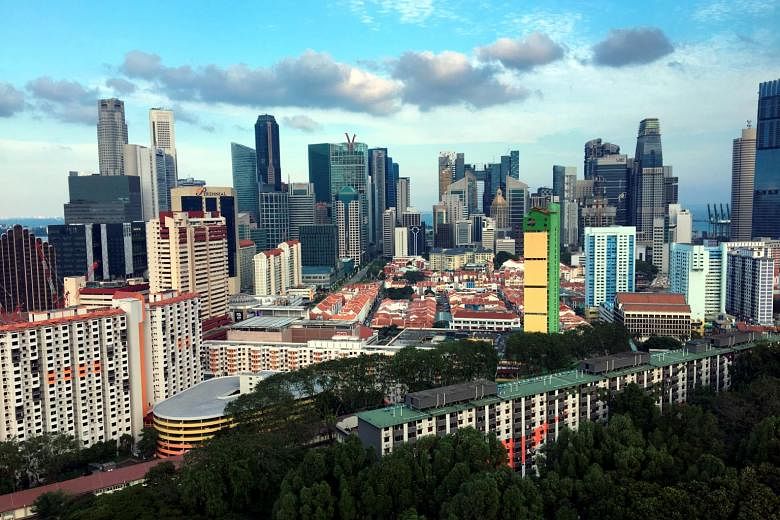Buildings more likely to be targeted by terrorists could be required by law to ramp up security measures - a move that has been described as "timely" but which has led to concerns about funding.
The Infrastructure Protection Bill, if enacted, will allow the Ministry of Home Affairs (MHA) to designate new buildings as "special developments" and existing buildings as "special infrastructures".
The proposed law was introduced in Parliament on Monday by Second Minister for Home Affairs Josephine Teo and will be debated at the next sitting.
New buildings have to integrate security measures as part of their design before they are constructed. Existing buildings must put these measures in place when they are renovated.
These buildings will include those that house essential services, have high human traffic or are iconic landmarks. Measures could include video surveillance, security personnel, vehicle barriers or efforts to strengthen buildings against blast effects.
Mr Steven Goh, the executive director of the Orchard Road Business Association (Orba), said it has been encouraging stakeholders - including hotels, retail buildings and offices - to harness technology when upgrading security, such as adopting artificial intelligence (AI) for facial recognition.
Mr Goh said Orba already works closely with the police to mitigate threats. For instance, concrete barriers to deter vehicle attacks have in the past been installed when Orchard Road was closed for events.
But he said some stakeholders are concerned about the cost. "Some funding would perhaps encourage buildings to upgrade their systems to be AI-enabled."
Mr Ravi Sivalingam, head of operational support services at the Esplanade, said the Bill was timely.
But he pointed out that Esplanade's manpower costs for security have increased by 46 per cent over the last three years, and that the cost of security technology and equipment is also rising.
He added: "We accept that these costs are inevitable given the security landscape... Whether we need extra funding depends on the extent of any new security measures we need to implement."
Mr Nicholas Mak, the executive director of ZACD Group, said full funding from the Government was unlikely and this could mean higher operating costs for building owners who might be affected by the Bill, leading to higher rents.
But the security of infrastructure and assets is "a shared responsibility that requires coordinated efforts by the Government, private sector and concerned citizens", said a spokesman for Certis Cisco, which has been working with many building owners in recent years to step up security measures.
A spokesman for Perennial Singapore Retail Management, which manages the historic Chijmes in Victoria Street, said there are plans to enhance its security systems.
Real estate company CapitaLand said it is "committed to reviewing our building security procedures and systems in consultation with the Government and relevant authorities".


